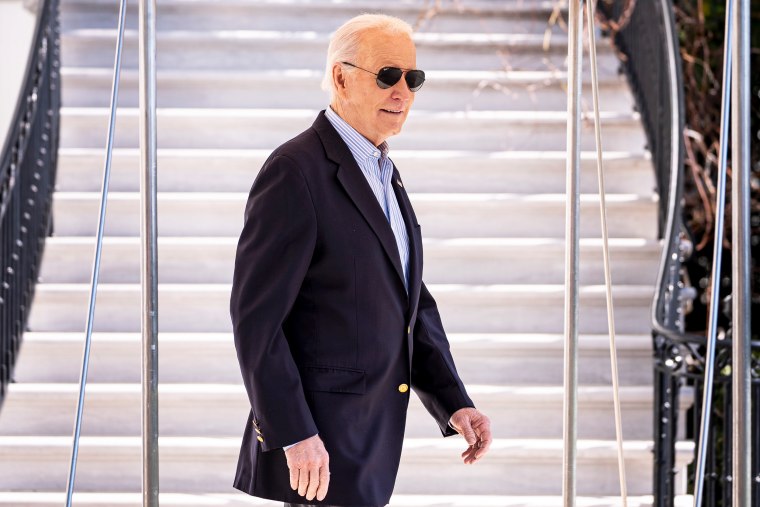Biden scrambles to salvage cease-fire after IDF reportedly kills scores of
The Biden administration is trying to salvage cease-fire negotiations after dozens of Palestinians were reportedly killed by Israeli forces while waiting in line for humanitarian aid in Gaza, according to multiple U.S. officials. Privately, administration officials expressed grave concern that negotiations on a deal to secure the release of hostages held by Hamas and a temporary pause in Israel’s military assault on the Gaza Strip could stall.
Administration officials — from President Joe Biden and Secretary of State Antony Blinken on down — made calls Thursday to their counterparts in capitals across the Middle East to try to salvage negotiations. But there was a growing sense of pessimism in the White House about a deal that Biden recently said was close could be finalized, one official said.
At the same time, administration officials tried to put a measured public face on the crisis, wary of overreacting at a delicate moment — and a potential inflection point in the war. The aid convoy deaths came on the same day that the Hamas-run Gaza Health Ministry announced that the Palestinian death toll in the war had passed 30,000.
Biden is desperate for a deal that would pause the violence in Gaza as he faces rising frustration with the Israeli government’s approach to the conflict and widespread pressure at home, as he campaigns for re-election, and from U.S. allies overseas.
At the same time, the president remains unwilling to make any major shifts in his policy toward Israel, including placing conditions on aid to Israel as some Democrats suggest, officials say.
White House officials said Thursday the administration had asked the Israeli government to investigate the attack in Gaza and provide more information on what led to the deaths.
Asked whether U.S. officials are putting their full faith in Israel or would attempt to investigate the event independently, one source familiar with the Biden administration’s discussions told NBC News that beyond the request to Israel, there’s not much more the U.S. can do because of limited assets and personnel on the ground to gather information.
Biden spoke by telephone Thursday with the leaders of Qatar and Egypt, who have played central roles in the negotiations. The calls were pre-scheduled about hostage deal negotiations and not in response to the deadly incident in Gaza, according to a senior administration official. The White House has not announced any upcoming presidential conversation with Israeli Prime Minister Benjamin Netanyahu.
One U.S. official said there is “no question” the deaths of Palestinian civilians Thursday leads to an even worse breakdown of trust between the parties at the negotiating table. Biden acknowledged as much, telling reporters he “knows” it will deeply complicate the talks.
Administration officials spent much of Thursday trying to determine the extent of the damage to talks, which they said would now be conducted remotely after weeks of in-person negotiations. They also privately expressed doubt that Israel would provide a full accounting of what took place.
Administration officials have held multiple high-level meetings in recent weeks to discuss possible policy moves that might incentivize Israel to change course in Gaza, according to two senior U.S. officials. The discussions have included punitive measures such as withholding or delaying weaponry sales to Israel or scaling back U.S. intelligence sharing, which some Democrats have privately pressed the president to do.

The meetings, some of which have been led by national security adviser Jake Sullivan, also included a review of incentives such as offering to bolster Israel’s air defenses and intervene with U.S. allies to gain more international support for Israel as it continues its military campaign in Gaza, the officials said.
Some of the president’s Democratic allies hoped Biden’s standing among voters in battleground states like Michigan might convince him to make policy changes toward Israel. But so far, the president has resisted making changes, and officials said they don’t expect that to change as long as a deal to release hostages held by Hamas in exchange for a temporary cease-fire is possible.
Biden has privately told some Democrats that he’s not sure withholding weaponry from Israel would be effective because while Israel wants more military aid, it doesn’t need it, according to a person familiar with his comments.
Defense Secretary Lloyd Austin was asked Thursday during a congressional hearing whether he would stop sending weapons to Israel if it defies U.S. warnings and launches a ground invasion into Rafah, and he…
Read More: Biden scrambles to salvage cease-fire after IDF reportedly kills scores of

